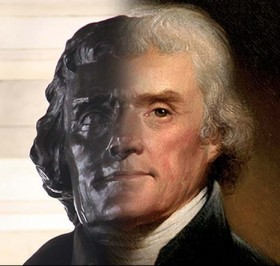Our founders wouldn’t know what to make of the controversy over Hillary Clinton’s emails—and not just because they wouldn’t know what emails are.
Clinton has been criticized for using a personal email address to conduct government business when she was secretary of state. She has turned over 55,000 pages of emails to the State Department but wants to keep private those emails that have nothing to do with government business.
And she would prefer to be the one who decides what is private. At a news conference she cited as examples of private subjects yoga routines, her daughter’s wedding, and her mother’s funeral.
“No one wants their private emails made public,” Clinton said, “and I think that most people understand that and respect that privacy.”
Another former first lady, Martha Washington, insisted on her right to keep private affairs private. Before she died, she burned all the letters she had from George Washington. Historians have since turned up only three letters from George to Martha, two of which were found in a desk Martha gave one of her granddaughters.
Thomas Jefferson was famously private about his personal life. He burned all of his letters from Martha Jefferson.
Well into the twentieth century, journalists agreed that the private lives of politicians were off limits. Many reporters knew about John Kennedy’s sexual relationships but few wrote about them openly.
Historians, too, largely stayed away from the subject. In 1974, Fawn Brodie published what she called “an intimate history” of Jefferson. Brodie presented a portrait in stark contrast to the traditional image of a monkish Jefferson, a man who, after his wife’s death, devoted himself to philosophy and politics.
Brodie’s Jefferson remained a passionate lover. In France, he met an artist named Maria Cosway, to whom he wrote a love letter. Brodie’s most controversial claim was that Jefferson had a long-term sexual relationship with Sally Hemings, an enslaved woman.
Brodie’s book was the bestselling nonfiction book of the year, and many newspapers reviewed it favorably. The historical establishment, however, was outraged. Merrill Peterson, author of a widely respected biography of Jefferson, called Brodie “obsessive.”
By the late 1980s, mainstream historians and journalists alike considered the private lives of a politician—especially a presidential candidate like Clinton—a subject of public interest. Gary Hart’s presidential campaign fell apart after newspapers reported on an extramarital affair.
We would like to believe there is a clear line between public and private, but is there? And who should decide where it falls?
What (if any) privacy do public figures deserve?


Leave a Reply